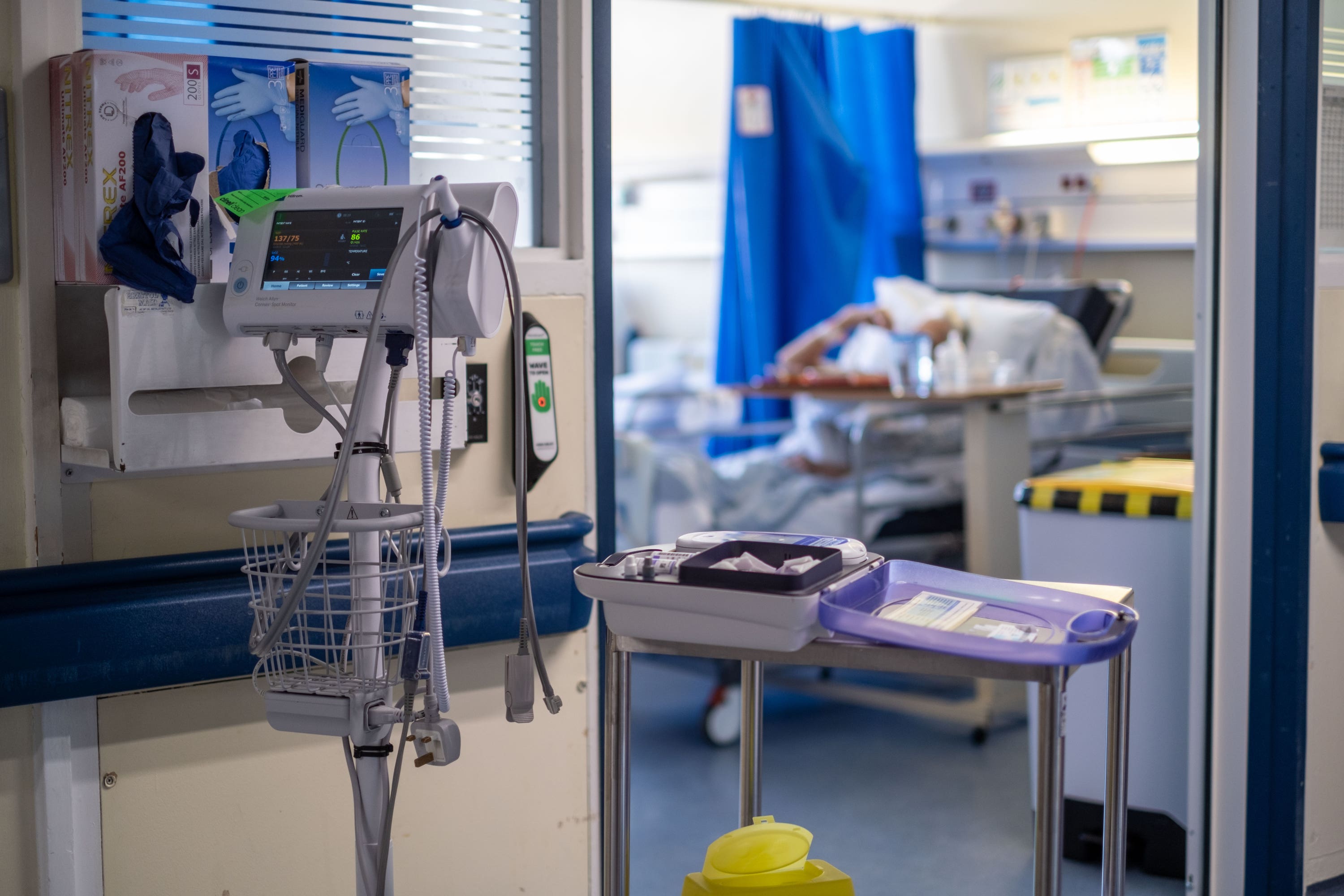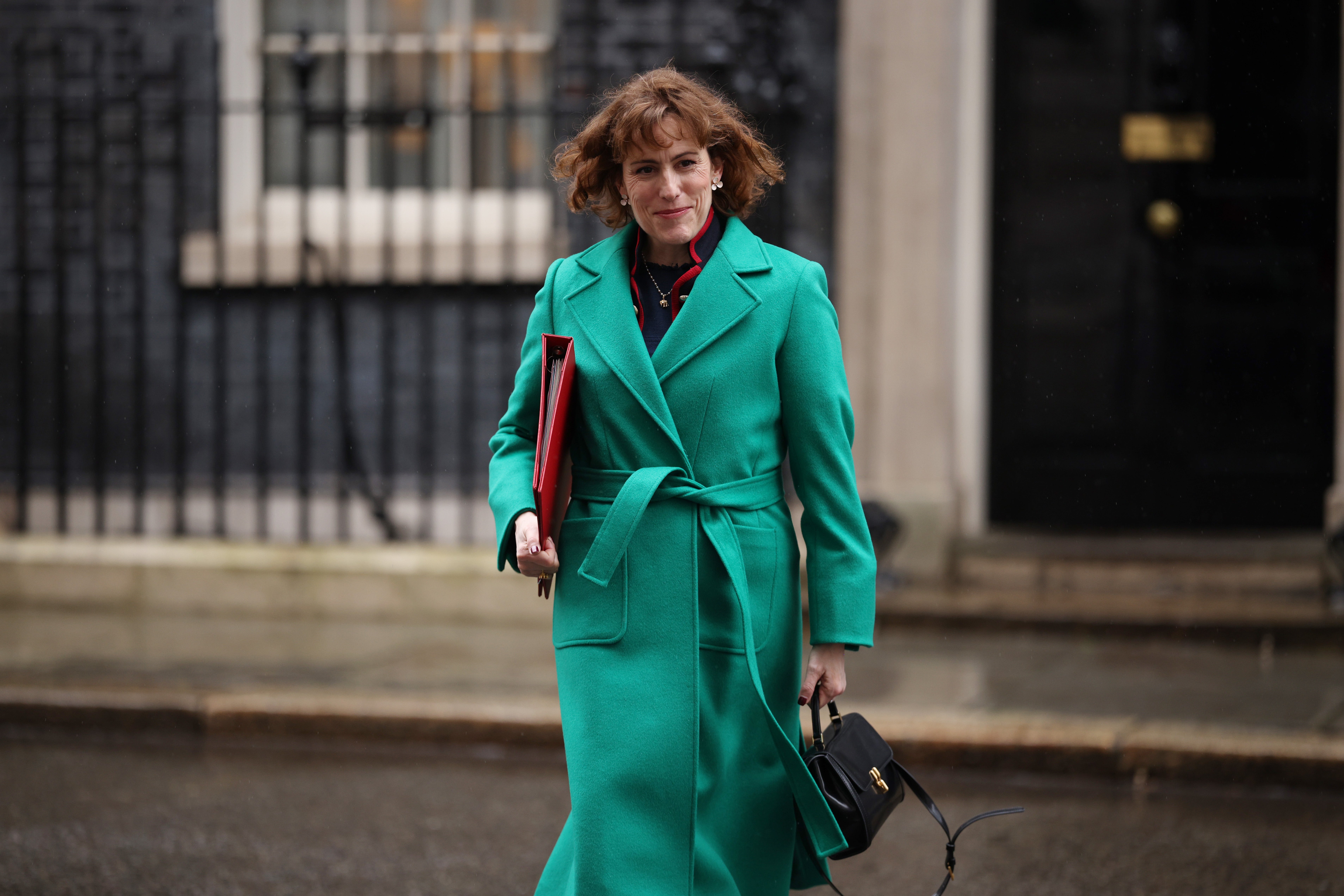NHS waiting list falls but number of patients waiting 18 months climbs, new figures show
Cancer waiting times also remain below target, new figures show.

NHS waiting lists in England have fallen for the fourth consecutive month, but the number of patients waiting more 18 months to be seen has increased, according to new figures.
Cancerwaiting times also remain well below target, the data shows, with charities calling for a long-term cancer strategy.
The fall in the overall NHS waiting list from 7.60 million treatments, relating to 6.32 million patients, at the end of December to 7.58 million in January, comes despite the longest ever junior doctors strike being held in January.
While the total waiting list fell, the number of people waiting more than 18 months went up to 14,013 from 13,164 at the end of December.
The Government and NHS England set the ambition of eliminating all waits of more than 18 months by April 2023, excluding exceptionally complex cases or patients who choose to wait longer.
Those waiting more than 52 weeks to start treatment fell to 321,394 from 337,450 in December, with an ambition to eliminate all waits of more than a year by March 2025.
Ministers have previously blamed waiting lists on ongoing industrial action in the NHS. The new figures come after junior doctors in England walked out on the longest strike in the history of the health service – six days – at the start of the year.
Health Secretary Victoria Atkins said the Government’s “commitment to cutting waiting times is unwavering”.
Elsewhere, some 70.9 per cent of patients urgently referred for suspected cancer in January were diagnosed or had cancer ruled out within 28 days, down from 74.2% the previous month and below the target of 75 per cent.
GPs in England made 249,787 urgent cancer referrals during the month, up from 219,841 in December and also up year-on-year from 228,402 in January 2023.
The proportion of patients in England waiting longer than 62 days in January from an urgent suspected cancer referral or consultant upgrade to their first definitive treatment for cancer was 62.3 per cent, down from 65.9 per cent in December and below the target of 85 per cent.
In December last year, The Independent revealed a stark warning from cancer doctors over the lack of specialist staff in the NHS to treat breast cancer patients.

Minesh Patel, head of policy at Macmillan Cancer Support, said “this can’t go on”.
“Healthcare professionals are doing all they can but are working in a permanent state of crisis,” he added.
“If the UK Government acts now, we can turn this around and ensure our cancer system is fit for purpose in the years to come.
“We need a long-term cancer strategy in England that provides the investment and focus needed so that everybody with a cancer diagnosis gets the timely and quality care they deserve.”
Professor Pat Price, who co-founded the #CatchUpWithCancer campaign, described the situation as “a disaster for cancer patients” and called for “a radical new cancer plan and a clear implementation plan to improve waiting times and cancer survival”.

In February, the number of people waiting more than 12 hours in A&E departments in England from a decision to admit to actually being admitted was 44,417, down from 54,308 in January, which was the second highest figure on record.
The number waiting at least four hours from the decision to admit to admission has also fallen, from 158,721 in January to 139,458 last month.
Some 70.9 per cent of patients in England were seen within four hours in A&Es, up slightly from 70.3 per cent in January.
In a letter to hospital leaders this week NHS England said it would award £2 million in capital funding to the 10 trusts with the best performance against the four hour target and £1 million to trusts which achieve the best improvement in March compared to Janaury 2024.
The NHS recovery plan sets a target of March 2024 for 76 per cent of patients attending A&E to be admitted, transferred or discharged within four hours.
Sarah Ms Woolnough chief executive for think tank the King’s Fund said that “it is unlikely” that these “watered down” targets will not be met.
“The Government set interim targets such as 76 per cent of people being seen within four hours in A&E, compared with the NHS standard of 95 per cent” she added.
Professor Sir Stephen Powis, NHS national medical director, said “demand for NHS services across the country remains high”.
He said: “It is testament to the hard work of staff and the measures in our elective recovery plan that despite the longest period of industrial action in NHS history in January, with one in five days affected, staff still managed to bring the waiting list down – staff delivered more activity than before the pandemic using a range of innovative and new technologies to ensure we continue to make progress on the longest waits for our patients.”
Bookmark popover
Removed from bookmarks